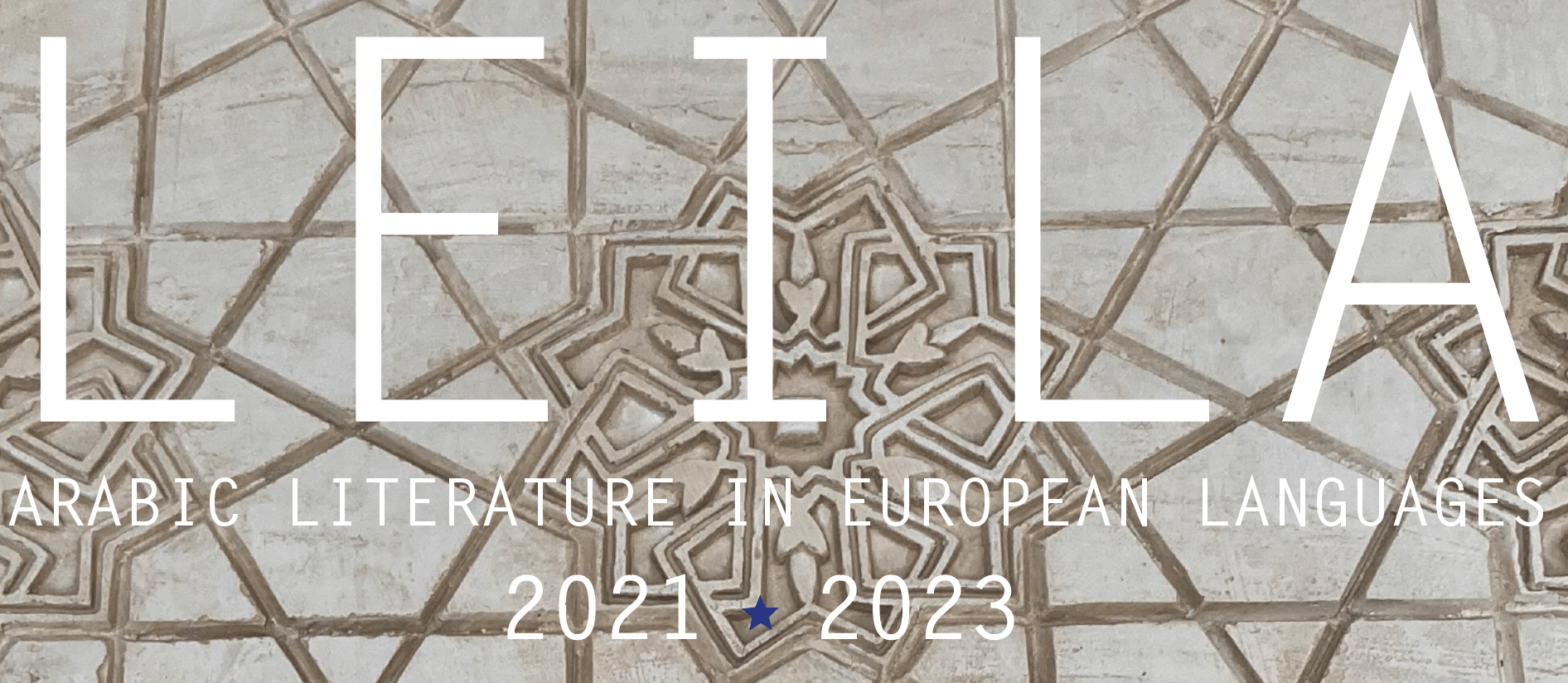LEILA is the reverse acronym for « Arabic Literature in European Languages ». « Layla » (« night ») is a word charged in Arabic with a very positive connotation: a feminine first name of pre-Islamic origin, « Leïla » means « the beginning of vertigo and the intoxication of love ». This name also refers to the Thousand and One Nights (in Arabic, « Alf layla wa-layla »), one of the first literary corpus translated from Arabic, which circulated in Europe as early as the 12th century. Finally, LEILA convokes in the imaginary « Majnûn Layla », a popular love story of pre-Islamic origin, a work of the universal that dialogues through its poems with all the cultures of the Middle East and Central Asia.
LEILA is founded on a common desire to promote the translation and circulation of the new Arabic-speaking literary scene in Europe. The « Arab Spring » of 2011 gave rise to an incredible artistic effervescence, driven by the liberation of speech and the fall or questioning of oppressive regimes: this suddenly led us, in Europe, to « re-see the other » and « listen to the Arab world », to finally leave the post-colonial paradigm of « the cognitive invisibility of Arab spaces » (Yassin El Haj Saleh). While the performing and visual arts have gradually found their place on the European art scene, the new voices of Arab literature remain little heard. As the first language spoken by the most recent arrivals in Europe, and by more than 500 million speakers worldwide, Arabic remains a « rare language » in the field of translation exchanges. At a time when Arab artistic creativity is booming in Europe, the new, effervescent, diverse and avant-garde Arabic-speaking literary scene is still only (too) weakly echoed there.
The LEILA project will take place over three years, with three key actions: to structure a network of actors and organizations in the field of Euro-Arab literature and publishing; to promote the « discoverability » of the new Arabic-speaking literary scene in Europe; and to strengthen the capacities and visibility of the new European generation of Arabic translators.
As a project partner, ATLAS will be hosting two highlights of the project. In June 2021 a forum about translation from Arabic into European languages was held in Arles. Ten translators joined forces during a one week residency at the International College of Literary Translators (CITL) at the Espace Van Gogh, to map the existing editorial landscapes for texts translated from Arabic to European langages, and to share best practices about the « discoverability » of new texts, their promotion and translation. A second residency will happen in 2023, allowing to share the work accomplished since 2021, the new authors who have been discovered, and the tools put in place to facilitate the rise of new voices from the Arab world to be translated.
The first residency was hosted in Arles from 14th to 18th June 2021.


